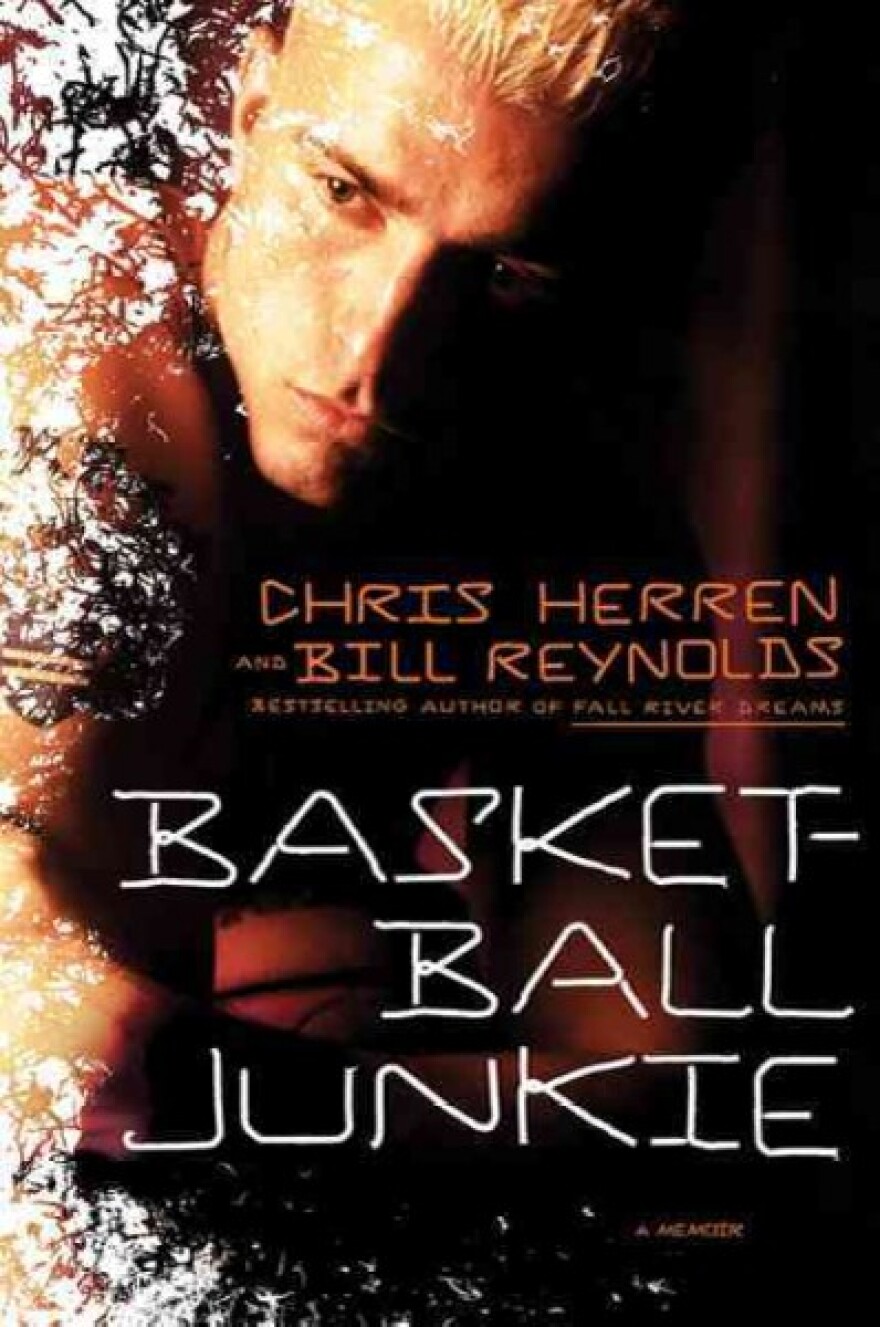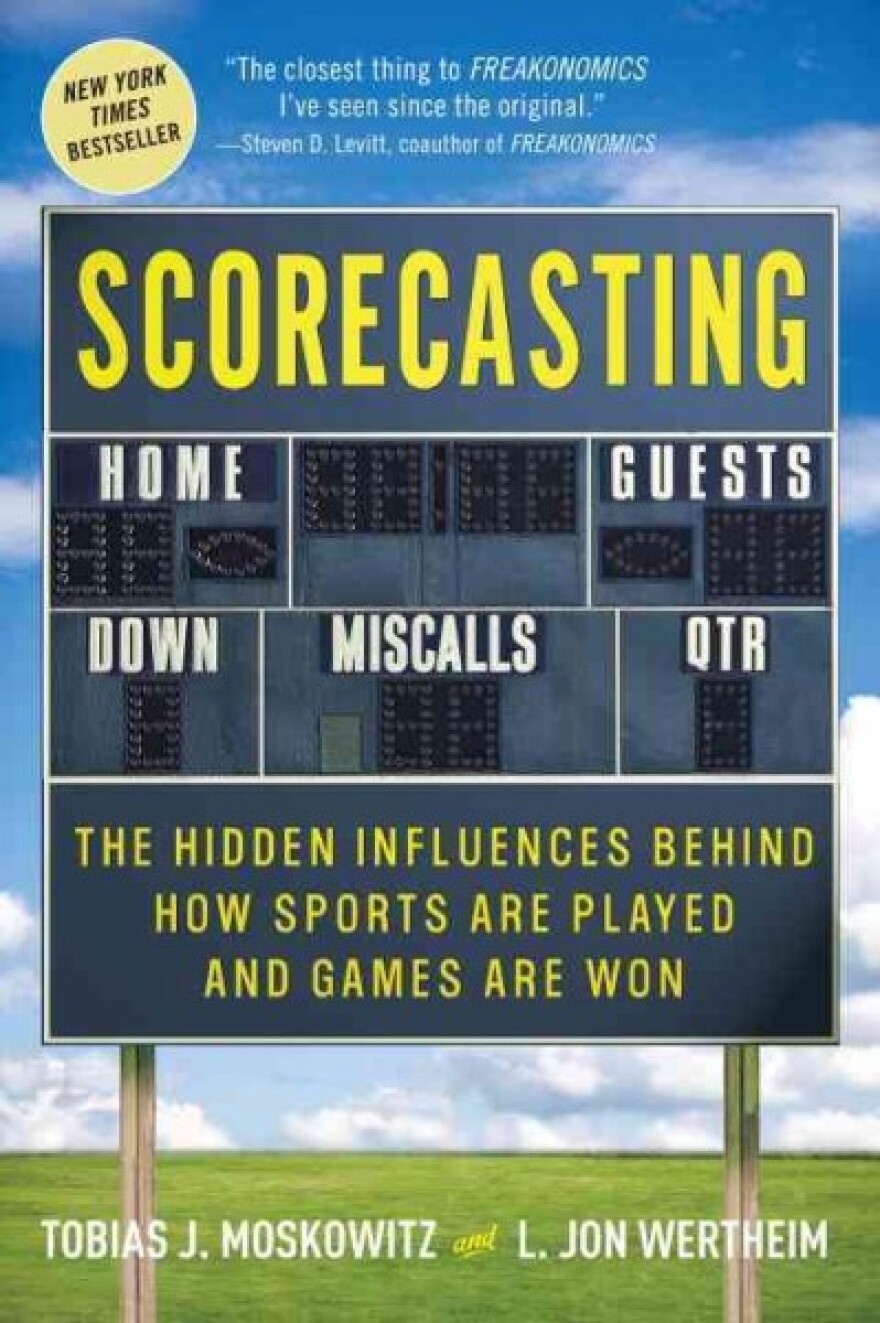While the traditional "beach read" set heads off for the summer with pails and shovels in hand, those who prefer a box score and a beer in the bleachers might be just as happy to settle in with a few good reads of their own. Writing about sports can mean anything from a juicy novel about love among athletes to an academic study of the game — whatever game is your favorite — to the obsessive superstar biography that raises up or knocks down a hero.
A good sports book might drag you out onto the field or into the locker room; it might go spelunking in the brain of a master or visit the world of the fan. In these five offerings, baseball is a hero's playground and a parent's testing ground, basketball bumps up uncomfortably against heroin addiction, sports journalism undergoes one of its most important transitions, and the sports geek's endless need to understand flowers in full.
Copyright 2024 NPR. To see more, visit https://www.npr.org.
Holmes Sports Roundup
Those Guys Have All the Fun

by James Andrew Miller and Tom Shales
In 2002, Tom Shales and James Andrew Miller published what's become the definitive oral history of Saturday Night Live. Now, they give a similar treatment to ESPN, from its origins as a pioneer in televising the NFL draft and the early rounds of the NCAA basketball tournament to its position as a multinetwork powerhouse that recently made a serious (though unsuccessful) bid to snatch the Olympics from NBC. Exhaustive interviews with executives, athletes and on-air talent will tell you everything you've ever wanted to know about working with Keith Olbermann, buying a transponder and managing a live broadcast. While some of it is standard cigar-chomping and deal-making, some tales — including Suzy Kolber's sideline encounter with a very drunk Joe Namath on live television — are particularly well-handled.
And, of course, it wouldn't be a dishy backstage tome if it didn't offer a few truly unforgettable lines, like former SportsCenter producer Bill Wolff saying of Olbermann, "If you take everything Keith says at face value, you will find your reason for living diminished."
Stan Musial

by George Vecsey
George Vecsey of The New York Times tells the story of baseball great Stan Musial — whom he openly champions as the most underappreciated player in history as well as a heckuva nice guy — with admiration of a type that's become far more rare in sportswriting. In warm, loping prose, Vecsey meticulously lays out the details of Musial's childhood, his long career with the St. Louis Cardinals and his pastimes off the field, like campaigning for John F. Kennedy and running a restaurant. Do not mistake this for a dispassionate recitation of biographical facts; it is a full-throated argument that Musial belongs alongside Joe DiMaggio and Ted Williams in the ranks of the very best players of his era.
It clearly pains Vecsey to repeat criticisms of Musial, who was with the Cardinals during the highly charged moments when some players (but not Musial himself) threatened to strike rather than play the Brooklyn Dodgers and their new acquisition, Jackie Robinson. Vecsey duly lays out the position held by some that perhaps even if he didn't support the strike, Musial could have done more to support integration. But while he gives a fair airing to those arguments, they quite clearly — and endearingly — don't change his conclusion that Musial is best thought of as a "nearly but not quite perfect human being."
Basketball Junkie

by Chris Herren and Bill Reynolds
One of the best things about the often devastating memoir of Chris Herren, a former Boston Celtics player and raging heroin addict, is that it's the rare story of addiction that gives off no perverse whiff of glamour. Herren's voice — getting the assist from Providence Journal columnist Bill Reynolds, who first wrote about Herren when the latter was in high school — is plain and powerful. Herren describes his addiction as an often flat, increasingly punishing mess that required him to, for instance, give up a high-paying basketball gig in Italy (after he washed out of the NBA) simply because he couldn't figure out where to get drugs and he was getting sick. This is not about the larger-than-life characters he encountered or the wild parties he attended. Instead, he speaks openly of being, as an addict, an unambiguously bad father and a bad husband, a screwed-up fool who couldn't find his own front door. It's a bracing story, and hard to hear, but it does an exceptional job of explaining Herren's addiction not as a spectacular implosion and glorious recovery but rather as a slow, gray tumble followed by a long, complicated climb.
Scorecasting

by Tobias J. Moskowitz and L. Jon Wertheim
If you're the kind of person who spends a lot of time on the Internet arguing about sports, you will be very familiar with plenty of the debates Scorecasting is designed to explore. Do officials have biases? Do coaches make bad decisions to try to keep their jobs? Whither home field advantage? With wit, thoroughness, in-depth research and a few principles of economics, Wertheim and Moskowitz (a Sports Illustrated writer and an economist, respectively) tear into some of the most beloved and bemoaned phenomena in popular sports and put forward often counterintuitive but well-argued conclusions. If you want to hear the most clear-headed explanation you're likely to encounter of why teams should almost never punt on fourth down (and of why your team probably will anyway), this is the book that will tell you.
Parents Behaving Badly

by Scott Gummer
Scott Gummer's first novel uses a popular sport — baseball — in one of the best ways a novel can: as a backdrop for dark comedy. Here, Ben and Jili, a level-headed pair of suburban parents, find themselves in the middle of the very strange, weirdly competitive world of Little League baseball, where the kids are nervous, the coaches are punishing and the adults' memories of childhood are surprisingly fresh. In arching a brow at youth sports, Gummer resists the urge to make all of the parents awful (only some of them are awful) or to discount the very real trade-off that sometimes exists between winning as much as possible and having a good experience as a player. As much as it's a sharp-tongued takedown of win-at-all-costs culture, Parents Behaving Badly is also a teasing, but ultimately affectionate, story about a happy marriage grappling with the approach of middle age and the pressures of parenting kids who are getting older every day.





